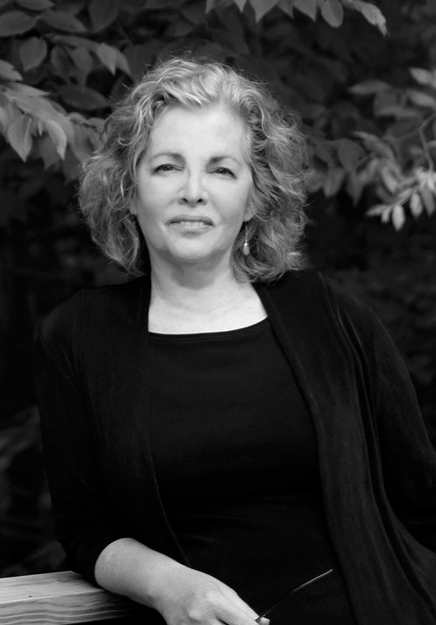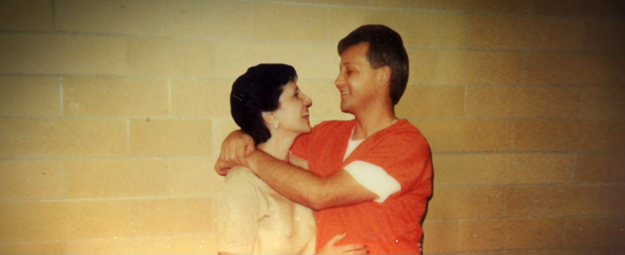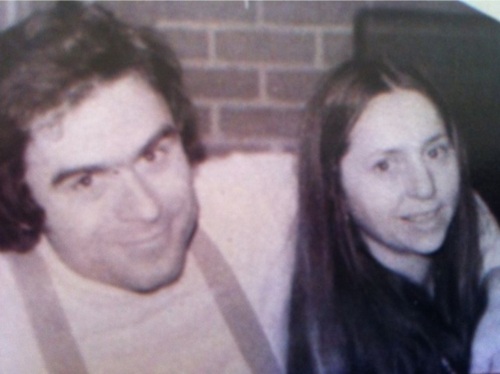The Real Reason Why Some Women Love Killers Will Surprise You

By:
New York prison employee Joyce MItchell became notorious last year when she helped two convicted murderers, Richard Matt and David Sweat, escape the prison where she worked. Mitchell — who later told officials that she helped the pair in part because Matt "made her feel special" — is just the latest, though, in a long history of high-profile cases of women who became fascinated with apparent killers, stretching back to Ted Bundy's "murder groupies" and Charles Manson's adoring female "family."
Former award-winning journalist and active author Sheila Isenberg essentially became the foremost expert on this subject when she published her 1991 book "Women Who Love Men Who Kill," in which she interviewed numerous women who considered themselves to be in relationships with convicted killers. Even though Isenberg's book (which is now available as an ebook) debuted more than 20 years ago, she continues to give interviews on new cases in the media and remains the most prominent writer on women who love men with a record of murder (when ATTN: contacted a forensic psychology professor, Dr. Katherine Ramsland, who had written recently on the subject, Ramsland suggested interviewing Isenberg instead, referring to her as "the authority on this [subject]").
ATTN: spoke with Isenberg by phone to talk about the women who love killers, the backgrounds that predict these romances, and what her research means from a mental health and social justice standpoint. According to Isenberg, the popular idea that women are drawn to these dangerous men out of a taste for the forbidden or a dark desire to "cross the line" and commit murder themselves — as portrayed on FOX's The Following, for example, where that premise essentially drove an entire TV show — is a pure fiction in her experience.
Instead, the real reasons behind these strange affairs of the heart are much more relatable — and perhaps more disturbing for it.
ATTN: What happened that first attracted your attention to this subject of women who love killers?
Sheila Isenberg: Well, I had actually just stopped working as a reporter which, as you know, can be a consuming job — it takes all your time energy and breath away. I was working as a press secretary in Albany and relishing my free time. I happened to be reading a newspaper article about a New York City stockbroker who was going on trial for the murder of his second wife, whose body had been found in a ditch along a New York state freeway.
In the article, this guy — his name was Joseph Pikul — there was a picture of a woman standing next to him and the caption said it was his fiancée. And I thought, 'Why is this woman engaged to this guy? He’s on trial for murdering his second wife.' She was fairly attractive and young.
And I also thought about how when I was a reporter, I had seen a couple women like this who had gotten involved with men like this. One was actually another reporter in the town I came from [in upstate New York]. And I thought, 'This is really bizarre — why are these women doing this?'
So I wandered down to the New York state library and started researching, and I found out nothing had been written. Not just not any newspaper or magazine articles, but not any psychiatry or medical journal articles — there was nothing.
I decided to start researching because I had enough time and I basically found a vacuum in this area and I thought it was a great subject. I also thought it was sexy enough that if I pitched it to an agent someone might grab it, and I was right.
 Sheila Isenberg
Sheila Isenberg
ATTN: You ended up talking to dozens of women who had fallen for convicted killers for this book. Were they difficult to find?
SI: Well, because I wrote the book and published it in 1991, it was before the internet, so it was really difficult to find them... and once I did find them it was very difficult to convince them to talk to me. I can’t minimize how hard it was. Every single woman I interviewed was a slog through the mud, basically.
ATTN: What did you find out once you finally got them to start talking with you?
SI: The first thing I found out is that once I got them to trust me, they loved talking, especially about the men in their lives. I interviewed each one over many, many hours and days and sometimes weeks. It wasn’t until I interviewed about 30 women that I developed a theory as to why they were in these relationships.
Most of the theoretical stuff is in chapter six of my book. I was trying to answer the question of why, and I think I basically did. I found they all had abusive pasts in their childhood — either by their parents, or they had been sex-abused by men in their lives, by husbands or boyfriends — so they were all damaged by abuse.
ATTN: I think a lot of people, when you broach this topic, they would think: 'Okay, this happens, but only to crazy people. You have to be a mentally ill person to fall in love with a convicted murderer.' Did you have that impression of these women?
SI: I didn’t find them to be crazy at all. Basically, what I came away with feeling, what I learned, is that everyone who falls in love or thinks they’re in love is finding some missing part of themselves or satisfying similar psychological needs in some way.
You know, if you have a friend who falls in love and you look and say, 'Geez, what is he thinking?' — everyone’s done that. So in the case of these women, we might do that, but what they see is basically a safe relationship — because if he’s behind bars, he can’t hurt them. And they’re basically in control because he’s behind bars or on death row. For a lot of these women, that was the first time they had that control [in a relationship].
ATTN: You mentioned in other interviews that these women don’t consider these relationships a “fling” — this isn’t like a weekend hobby for someone who’s bored. From what they told you, they were waiting for these men to get out of prison and really planned to start a life with them.
Doesn’t that complicate the idea of safety though? He can’t hurt them from behind bars, but if he gets out and moves in with them, he definitely can.
SI: Yeah, that’s a real dichotomy... They want to get them out of prison, they want to settle down, but the truth is it wouldn’t work. Either they couldn’t function on the outside, or they’d do harm and end up back inside. The idea that the woman wants to settle him down is part of the nice cozy fantasy. They think they’re in love but they’re really not in love.
Love is the initial stage that’s romantic and exciting, and then you settle down and have a closer more intimate relationship. The relationship between these women and these men never changes into that more companionate love, it’s always exciting and it’s not really real.
 YouTube/ABC News - youtube.com
YouTube/ABC News - youtube.com
ATTN: I watch a lot of crime shows, so I’ve seen a lot of shows where so-called “serial killer groupies” are portrayed. They usually portray them as young women who are sort of danger-seeking — they’re drawn to these men because they’re sort of the ultimate “bad boy.”
SI: Yeah, I don’t think that’s true. I really think what you get with women attracted to Charles Manson or Scott Peterson or serial killers — those women are attracted to the notoriety, the newspaper headlines. They want 15 minutes of fame and that’s an easy way to get there. I mean, we live in a culture now, more than when I wrote the book, where celebrity is a claim for celebrity. People are famous for doing nothing.
ATTN: You also wrote in your book that most of the women believed that the men were innocent, which shoots the “bad boy” theory down pretty quickly.
SI: I wouldn’t use the words 'They think he’s innocent' so much as… 'not bad,' 'not seriously guilty,' or 'he’s changed now.' So not innocent but not a bad person. A person who deserves a second chance. Maybe he wasn’t in his right mind then, maybe he was too young, but he’s different now.
ATTN: So does this happen to abused men at all, that they fall for female killers?
SI: It doesn’t. I never found any examples of this, at least. It’s not a guy thing.
ATTN: What about demographics? Is there a certain race or age group of women that’s predisposed to this?
SI: They’re all different in terms of race, education, socioeconomic background, but they all had one thing in common — they were all Catholic.
ATTN: I grew up Catholic so I’m trying to think of a theory for that. Maybe some sort of manifestation of the famous “Catholic guilt” — there’s so many psychological angles. Do you have a theory on that?
SI: I don’t have any idea. You can read into it what you want —whether it’s what you say, Catholic guilt or an obedience thing. I don’t know. Maybe a theologian could figure it out but I really don’t know.
ATTN: Did you find any cases where the woman was confronted with hard evidence of the man’s guilt and sort of became disillusioned or broke it off?
SI: Sure. Ted Bundy’s wife believed he was innocent even when on trial, and at some point later on she changed her mind and decided he really was guilty so she ended it their marriage. If they’re suddenly confronted with the irrefutable guilt of the man, they will usually end the relationship.
I think most of the time with a regular murderer, though, who’s committed one murder — as opposed to like a serial killer — that’s a hard thing to prove beyond all doubt. We all know the criminal justice system can be flawed, and if you want to convince yourself that someone is innocent then that’s usually possible.
ATTN: Speaking of Ted Bundy, he’s sort of the original “poster boy” for this phenomenon of women flocking to an accused killer — at least the first where it attracted media attention. Is he the first case that you know of or are there earlier historical examples?
SI: There was a case I think in the early 20th century in Philadelphia — and this is in my book, and also there’s a movie about it called “Mrs. Soffel” — somehow I came across that and it’s a true story and it’s about the wife of a prison warden who got involved with a murderer in the prison. And this man had these sort of groupie followers as well, and it’s a true story.
So I think this goes way back. I don’t think it’s just Bundy. With the advent of modern media it’s so much more accessible, but it goes back into the 1800s, with Jack the Ripper — if there was such a person — or the Boston Strangler in the 1950s. I think any of these notorious serial killers have followers.
 via Tumblr - tumblr.com
via Tumblr - tumblr.com
ATTN: Going back to the women you personally interviewed — did you see them as victims of these men they fell in love with?
SI: I think they were victims of society in their initial abuse. I think they were abused. I don’t think they’re victims in the relationships they’re engaged in with these men, with these murderers. But they were victims initially.
I think they found a way to survive that initial victimhood. It’s not necessarily a healthy way, not the best way — the best way would be if they’d get a lot of therapy and join a women’s rights group. But you know, it is what it is.
ATTN: It sounds like you don’t see this phenomenon of women who fall in love with killers as mainly a mental health problem. It sounds like you see it as a social problem.
SI: I do see it as a social problem because I think abused women are a social problem. When men and women learn to think about each other differently, when little boys are taught to respect women as equals and when little girls are taught to think that way of themselves — it starts in childhood. Every step forward we make and every big leap of progress in the way women are treated by society is a step in addressing this phenomenon.
